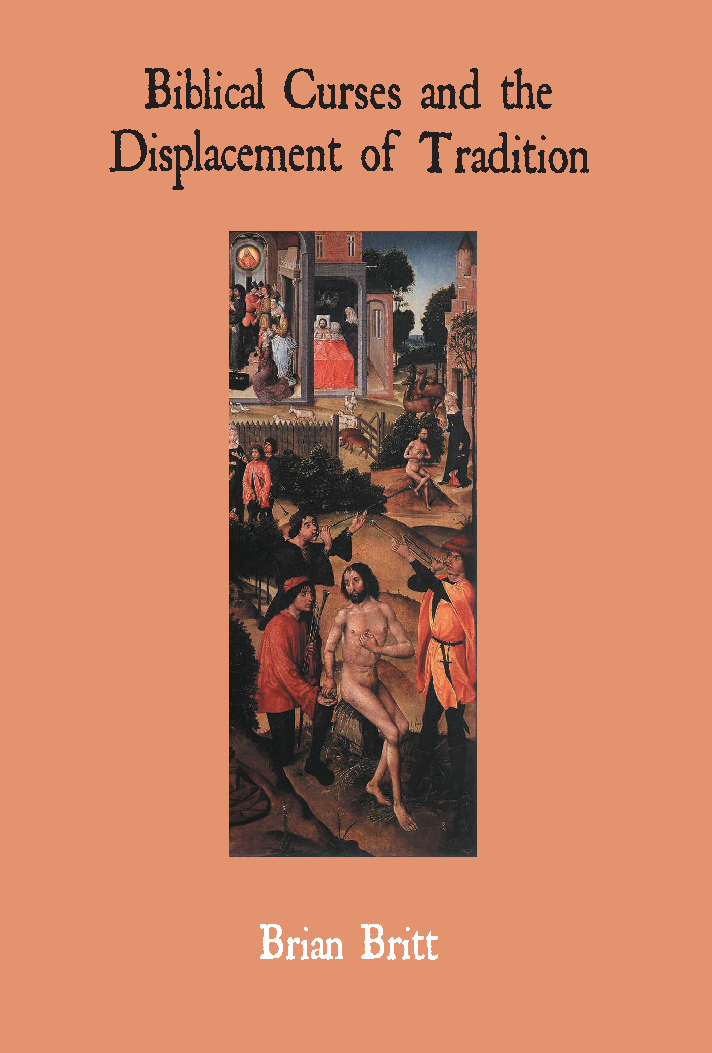Biblical Curses and the Displacement of Tradition
£70.00
In Biblical Curses and the Displacement of Tradition Brian Britt offers an intriguing perspective on curses as the focus of debates over the power, pleasure, and danger of words.
In Biblical Curses and the Displacement of Tradition Brian Britt offers an intriguing perspective on curses as the focus of debates over the power, pleasure, and danger of words. Biblical authors transformed ancient Near Eastern curses against rival ethnic groups, disobedient ancestors, and the day of one’s own birth with great variety and ingenuity.
Transformations of biblical curses proliferated in post-biblical history, even during periods of ‘secularization’. This study argues that biblical, early modern, and contemporary transformations of curses constitute displacements rather than replacements of earlier traditions.
The crucial notion of displacement draws from Freud’s psychoanalytic theory, Nietzsche’s critical philosophy, and Benjamin’s engagement with textual tradition; it highlights not only manifest shifts but also many hidden continuities between cursing in biblical texts and cursing in such ‘secular’ domains as literature, law, politics, and philosophy. The tradition of biblical cursing —neither purely ‘religious’ nor purely ‘secular’ —travels through these texts and contexts as it redefines verbal, human, and supernatural power.
Additional information
| table of contents | Introduction. The Displacement of Biblical Curses PART 1. BIBLICAL CURSES 1. Covenant Curses as Models of Displacement 2. Identity and Ethnicity in Biblical Curses 3. Cursing the Day, Cursing the Self. Job 3 and Jeremiah 20 PART 2. EARLY MODERN CURSING 4. Power and Profanity. Cursing in Seventeenth-Century England 5. Broadside Ballads, Lyrical Ballads, and the Wandering Jew 6. Nietzsche and Freud, Cursing Moderns PART 3. THE CONTEMPORARY LEGACY OF BIBLICAL CURSES 7. Biblical Curses in American Fiction. Hurston and O’Connor 8. Erasing Amalek. Derrida, Negative Theology, and Biblical Erasure 9. Curses Left and Right. Speech–Act Theory, Hate Speech, and Religious Freedom |
|---|


Chance Bonar, Relegere: Studies in Religion and Reception. –
Overall, Biblical Curses and the Displacement of Tradition provides readers with a powerful study that attempts to disrupt the early modern secular/sacred divide with Britt’s concept of ‘displacement’. This book should encourage scholars and readers to reexamine these Enlightenment-era binaries and instead look for the evolution and afterlives of biblical concepts such as cursing.
Brian R. Doak, Review of Biblical Literature. –
[T]he portions of the book dedicated to cursing in early modern Europe, American fiction, and contemporary legal debates were often dazzling in the best of ways, original, and provocative. Indeed, Britt’s work here should be successful in fulfilling a mandate often bandied about in circles of biblical scholars (but rarely fulfilled in practice), that biblical scholars succeed in writing something that a nonbiblical scholar would actually want to read—or indeed, have to read.
Overall, this book offers insights of value in every chapter and makes simultaneous contributions to the fields of secularization theory, biblical studies, psychoanalysis, modern American fiction, and contemporary hate speech … [T]his book stands as a weighty and learned addition to Sheffield’s Bible and the Modern World series, and the author is to be congratulated for the achievement it represents. Brian R. Doak, Review of Biblical Literature.